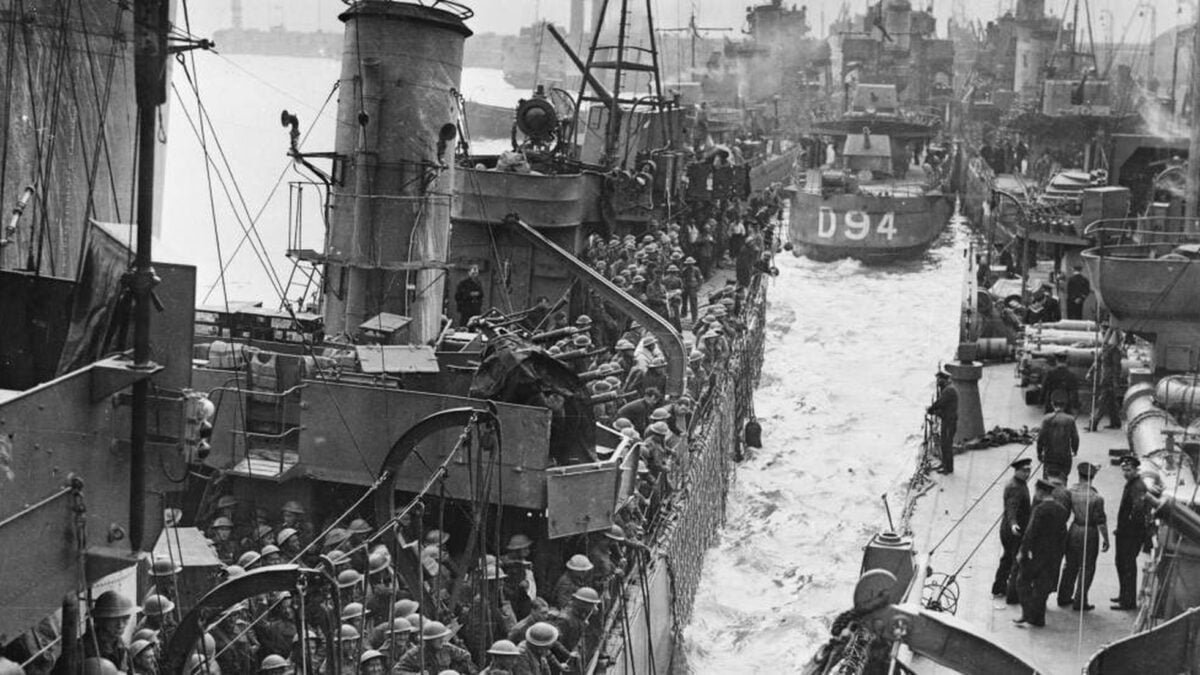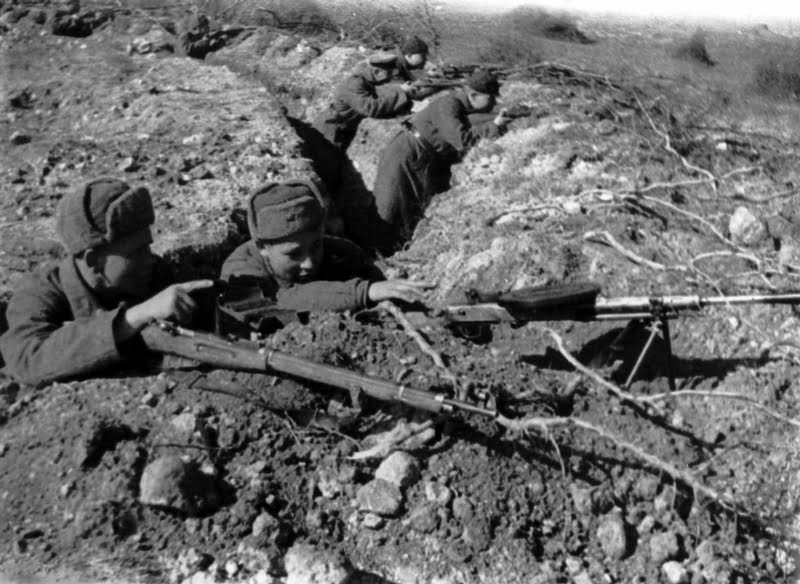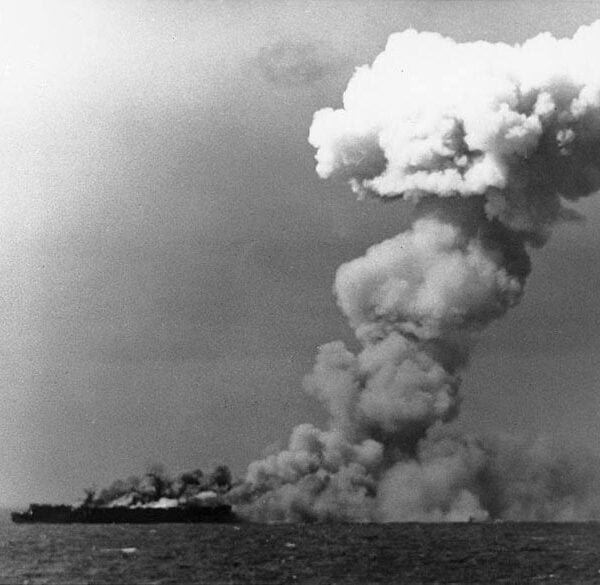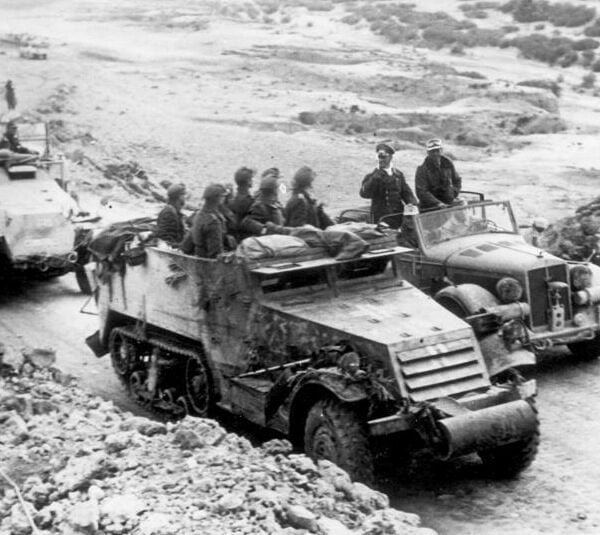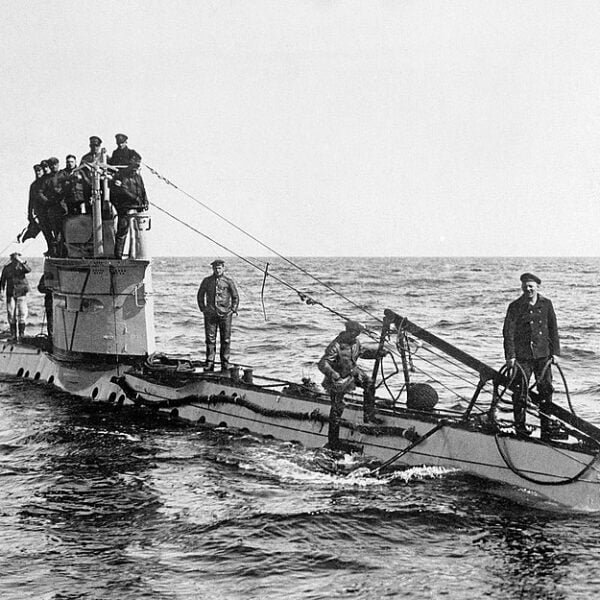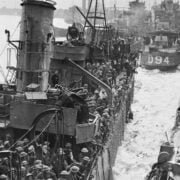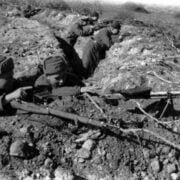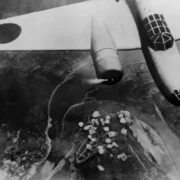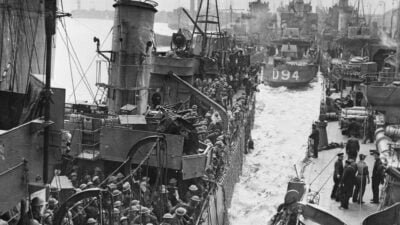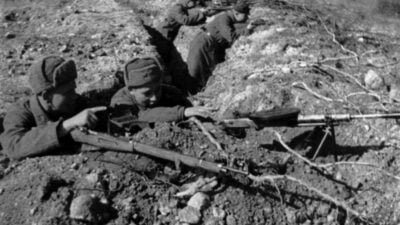Unit 731, a secret division of the Imperial Japanese Army during World War II, is a dark and controversial chapter in military history. While the conventional narrative of the war emphasizes battles and strategies, the existence of Unit 731 remained shrouded in secrecy for a long time, bearing witness to the horrors that occurred behind the scenes of the global conflict.
Also check out: Battle of Leyte Gulf: The Greatest Naval Battle in History
Historical Context
The history of Unit 731 begins in a tense context of militarism and territorial expansion in 1930s Japan. This period witnessed not only an increase in Japanese aggression in Asia but also the formation of specialized units like Unit 731, operating in the shadows, away from the public eye and, in many cases, even official records.


The 1930s saw a tumultuous global scenario marked by political and economic instabilities echoing worldwide. Japan, immersed in this context, was driven by heightened nationalist fervor fueled by a complex mix of post-World War I discontent, the quest for natural resources, and a fervent desire to assert its position in the international community.
Japanese resentment towards the restrictions imposed by the Treaty of Versailles created a conducive atmosphere for the rise of militarism. As Western powers engaged in their own conflicts, Japan saw an opportunity to expand its influence in the Asia-Pacific region. This pursuit of regional hegemony, fueled by imperialistic ideology, created favorable conditions for the formation of specialized military units.
Territorial expansion became a crucial strategic objective for Japan. The appetite for natural resources, especially oil and minerals, propelled the Japanese military machine beyond its borders. The invasion of Manchuria in 1931 was a prelude to a series of military campaigns, consolidating Japanese influence in China and Southeast Asia.
Amidst this backdrop of geopolitical turmoil, Unit 731 found its raison d’être. Operating outside international conventions and often beyond the knowledge of other Japanese military sectors, this unit secretly embarked on a sinister mission while the world was distracted by other war fronts.
Foundation and Leadership of Unit 731
It was established in 1937 in Pingfang, China, led by the infamous General Shiro Ishii. Ishii, a microbiologist and physician, saw the unit as an opportunity to conduct large-scale, often cruel and inhumane experiments.


Context of the Foundation of Unit 731
The unit’s creation coincided with the peak of Japanese expansionist ambitions in Asia. The invasion of China was in full swing, and the unit was established in Pingfang, a strategic area for conducting operations in occupied Chinese territory. The military urgency of that time served as justification for the formation of a unit operating outside ethical and legal conventions.
The clandestine founding of the unit revealed a deliberate intention to keep its activities away from the eyes of the world and, crucially, away from the Japanese population. This was an endeavor that could not withstand public scrutiny, as it was based on inhuman experiments and unscrupulous methods that violated all ethical norms.
Leadership of Shiro Ishii
Shiro Ishii’s role in Unit 731 is central to understanding the gravity and cruelty of the conducted operations. Ishii, a skilled microbiologist and physician, not only led the unit but also lent his scientific expertise to justify the inhuman practices conducted in the name of military research.
Ishii saw in the unit a unique opportunity to conduct large-scale experiments. His leadership not only allowed but encouraged the execution of heinous procedures on prisoners of war, many of whom were Chinese and Russian. The cruelty of the experiments, including dissection without anesthesia and exposure to biological agents, reflects the complete absence of ethical boundaries under his direction.
Furthermore, Ishii’s ability to conceal the unit’s activities from Japanese authorities and the international community contributed to the perpetuation of the secrecy surrounding the unit’s operations.
The interconnection between historical context, clandestine foundation, and Shiro Ishii’s leadership provides a deeper insight into the circumstances that allowed the flourishing of this sinister unit.
Human Experiments by Unit 731
The most shocking aspect of Unit 731 was its involvement in human experiments. Prisoners of war, mainly Chinese and Russian, were subjected to unimaginable tests. These experiments included dissection without anesthesia, exposure to biological agents, and tests of chemical weapons.


Prisoners of War as Guinea Pigs
It primarily used prisoners of war as guinea pigs for its experiments, many of whom were Chinese and Russian captives during Japanese military campaigns. These individuals were subjected to painful and deadly procedures without the slightest consideration for their human dignity.
Dissection Without Anesthesia
One of the most grotesque procedures involved the dissection of still-living prisoners without any form of anesthesia. This brutal method sought to understand human anatomy and internal organs under extreme conditions, supposedly contributing to the development of surgical techniques on the battlefield.
Exposure to Biological Agents
The unit did not limit itself to surgical procedures. Experiments involving the exposure of prisoners to biological agents, such as deadly bacteria and viruses, were systematically conducted. The goal was to study the effects of these agents and develop biological weapons capable of causing mass devastation.
Testing Chemical Weapons
Additionally, Unit 731 was involved in testing chemical weapons, exposing prisoners to toxic substances to assess lethal effects. These experiments not only compromised the physical integrity of individuals but also represented a terrifying escalation in the quest for increasingly lethal war methods.
Disregard for Human Life
The experiments conducted demonstrate a complete disregard for human life. Prisoners were treated as disposable objects, mere means to a macabre end. The pseudo-scientific justification for these atrocities reveals a profound moral distortion, where the pursuit of knowledge and military advantage overshadowed any ethical consideration.
Development of Biological Weapons
The development of biological weapons by Unit 731 represents a dark and disturbing chapter in military history, revealing the extent of its relentless pursuit of increasingly lethal war methods. The activities of this unit transcend ethical boundaries and introduce a horrifying dimension to scientific exploration, marking a point where the line between military advancement and atrocity becomes obscure.
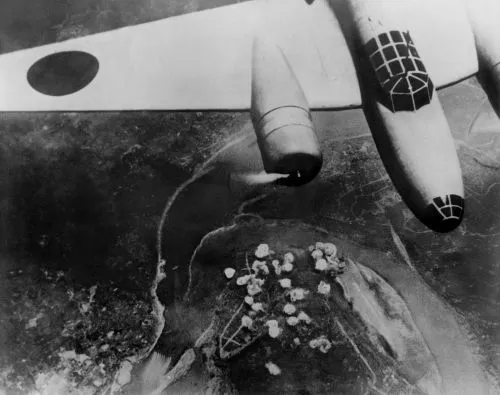

Strategic Objective
The primary goal in developing biological weapons was to create highly lethal and efficient pathogenic agents capable of widespread dissemination during conflicts. The choice of this type of weapon reflected the pursuit of methods that could cause not only immediate physical harm but also instigate panic and destabilize enemy populations.
The unit conducted extensive experiments with a variety of biological agents, including bacteria and viruses. Prisoners of war were exposed to these agents to assess their effectiveness and lethality. The purpose behind these experiments was not only to understand the biological effects but also to develop effective methods of dissemination in war conditions.
Bubonic Plague and Other Deadly Diseases
Unit 731 particularly focused on the bubonic plague, a highly contagious and deadly disease. Experiments aimed to understand how the disease spread and what were the most effective means of its dissemination. Besides the plague, other diseases such as cholera were studied with the intention of developing biological weapons capable of causing devastating epidemics.
Parallel to experiments with pathogenic agents, the unit also engaged in developing dissemination vectors. This involved research into effective ways of releasing biological agents on a large scale, whether through bombs, aerosols, or other forms of propagation. This approach aimed at maximum effectiveness during conflicts.
The development of biological weapons encapsulates a complete disregard for human life in the name of military science. The sacrifice of prisoners of war in cruel experiments and the relentless pursuit of increasingly deadly war methods underscore the total absence of ethical limits.
The legacy of this pursuit of biological weapons endures in contemporary concerns about the proliferation of such technologies and in ethical discussions about the limits of military research. In the following sections, we will explore the secretive operations of Unit 731, the impact on medical ethics, and efforts for acknowledgment and accountability for the committed atrocities.
Secret Operations of Unit 731
The secret operations of the unit shed light on the extent of desperate efforts to conceal the disturbing activities of this military unit. The veil of secrecy surrounding the operations not only allowed the continuation of inhumane experiments but also revealed an intricate web of deception that permeated the entire structure of the unit.
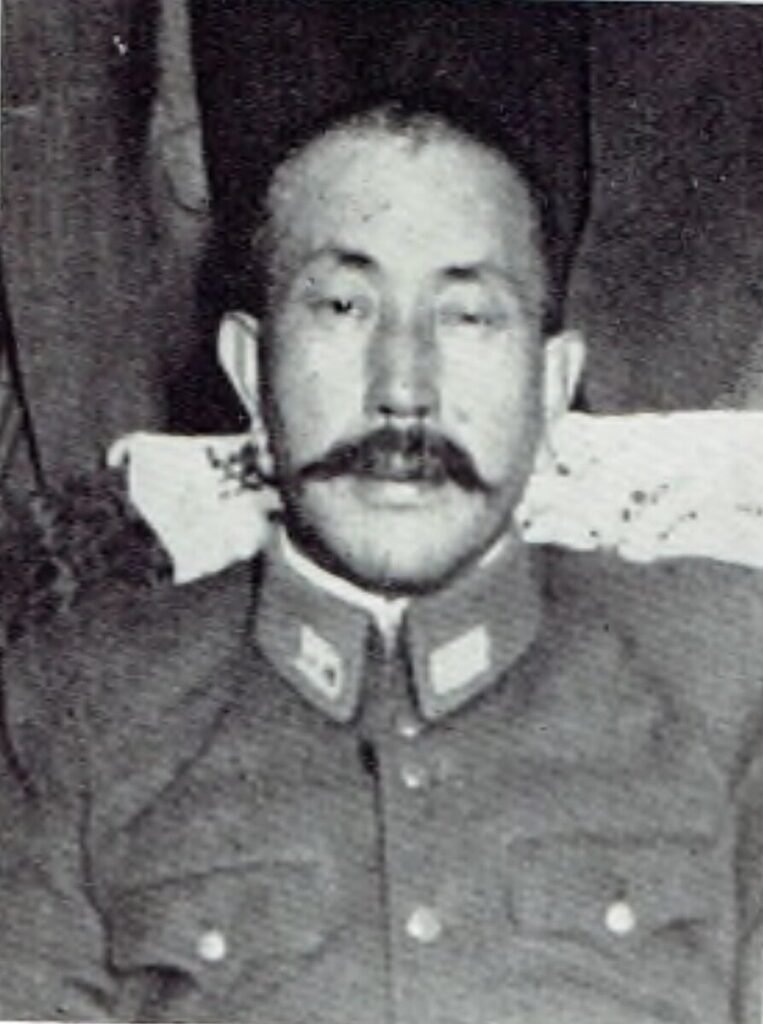

Since its foundation, the unit operated under a cloak of clandestinity, hiding its activities from public knowledge and even from other sectors of the Japanese army. Located in Pingfang, China, the remote geographical location contributed to secrecy, while meticulous strategies were implemented to camouflage the true intentions of the unit.
Official Denial and Strategic Silence
The Japanese government, aware of the unit’s activities, adopted an official denial stance for decades. When questioned about the unit’s existence, Japan persisted in its denial, refuting any involvement in inhumane experiments or the development of biological weapons. This strategic silence allowed the perpetrators to escape accountability for a significant period.
Covering Up the Atrocities of Unit 731
The unit conducted its operations under a shroud of impunity, confident that its actions were protected by the veil of military secrecy. Documents, records, and witnesses were manipulated or eliminated to prevent the truth from emerging. This effort to cover up the committed atrocities fueled the dark legacy of the unit for many years after the end of World War II.
After the conflict, unit members were immunized from criminal proceedings in exchange for research data. These post-war agreements highlight the moral and political complexity that pervaded international relations in the post-World War II period. The pursuit of knowledge and military advantage often prevailed over the pursuit of justice.
Continued Impact on History and Global Consciousness
The secrecy surrounding the unit’s operations not only perpetuated the suffering of the victims but also left an indelible mark on history and global consciousness. The gradual revelation of these operations has sparked ethical debates and questions about historical responsibility and the need for transparency in times of conflict.
Exploring secret operations not only illuminates the cunning methods of this unit but also underscores the importance of ongoing vigilance to prevent similar atrocities from recurring in the future. In the following sections, we will examine the impact on medical ethics, the issued apologies, and the complexity of the official acknowledgment of these dark events.
The Legacy and Controversy of Unit 731
The legacy of the unit is a scar in history that sparks heated debates and raises complex questions about ethics, responsibility, and the role of scientific knowledge in times of war. While some attempts have been made to acknowledge and understand the atrocities committed by the unit, the legacy remains intertwined with persistent controversies echoing through the decades.
Apologies and Official Recognition of Unit 731
Over the years, the Japanese government has issued apologies for the unit’s actions. However, controversy persists due to the gradual and, in some cases, ambiguous nature of these apologies. Some critics argue that full official recognition and responsibility have not yet been achieved, while others see these apologies as significant steps toward confronting Japan’s dark past.
Scars on Medical Ethics
The legacy of the unit transcends militarism, leaving deep marks on medical ethics. The use of data obtained through cruel experiments raises persistent questions about the acceptability of using information derived from unethical practices. The impact on medical ethics is not limited to Japan alone but resonates globally, fueling discussions about the need for universal ethical standards in medical research.
The Difficulty of International Recognition
Controversy around the international recognition of atrocities is evident in the reluctance of some countries to fully address these events in broader historical contexts. Diplomatic, political, and national issues often hinder a unified approach, leaving gaps in the global historical narrative.
The Challenge of Accountability
The issue of accountability for the actions of Unit 731 remains a complex challenge. While some members were tried for war crimes after World War II, others were immunized in exchange for information. This dilemma raises questions about justice and the extent to which individuals and nations should be held accountable for atrocities committed in times of conflict.
Impact on Global Historical Consciousness
The legacy and controversy surrounding the unit directly influence global historical consciousness. The gradual revelation of these dark events has altered the way World War II and its consequences are perceived, adding complexity to the collective understanding of this period.
Exploring the legacy and controversy of the unit is to confront not only past events but also the ethical and moral implications reverberating in the present. In the following sections, we will take a closer look at the impacts on medical ethics and the issued apologies in an attempt to reconcile the wounds opened by this dark chapter in Japanese history.
The Historical Scar of Unit 731
Unit 731 remains a scar in the history of Japan and the world. Its legacy highlights the dangers of the unrestrained pursuit of military progress, shedding light on the extremes humanity can reach when ethics and morality are sacrificed in the name of superiority. This dark chapter in history reminds us of the ongoing need for reflection and vigilance to prevent such atrocities from recurring in the future.

